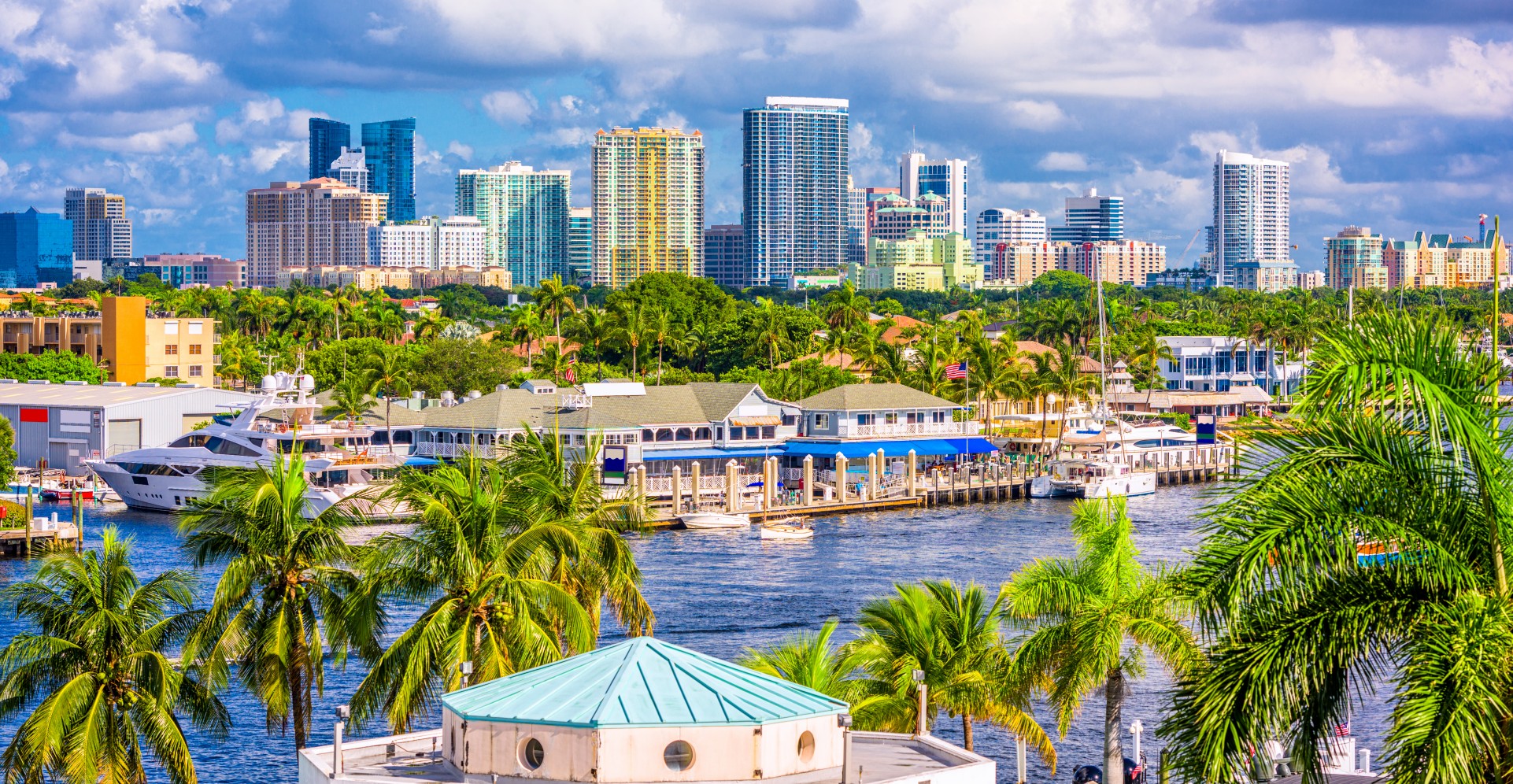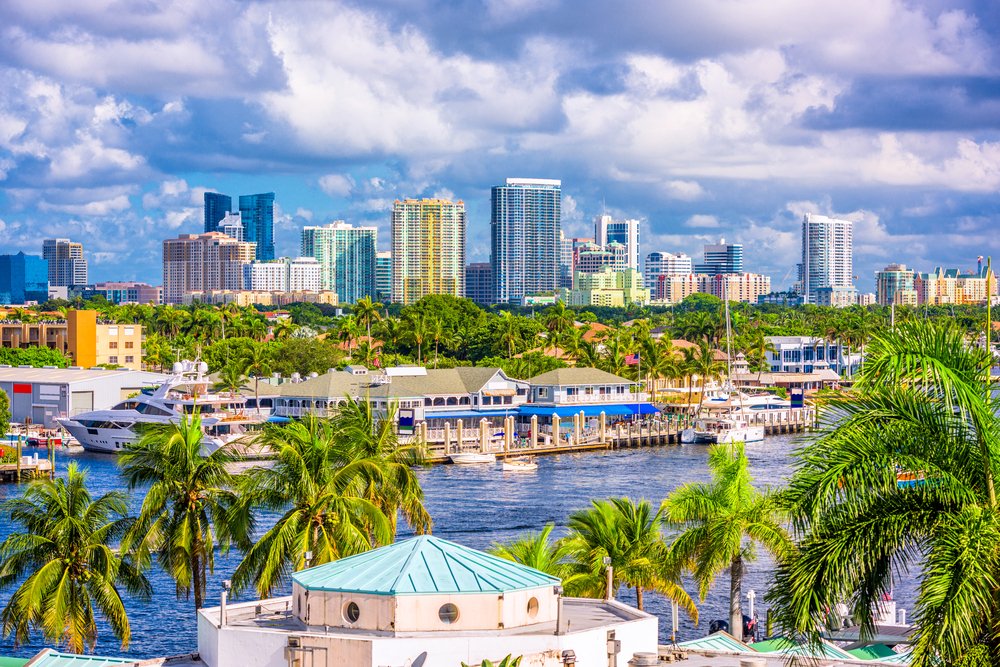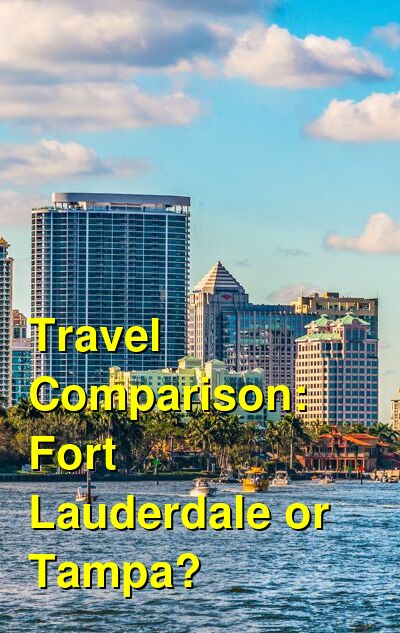Moving From Tampa To Lauderdale
Are you considering a move from Tampa to Fort Lauderdale? If so, you're not alone. Many people make the transition every year, drawn by the allure of Fort Lauderdale's scenic beaches, vibrant cultural scene, and thriving economy. However, making such a significant move can be daunting, especially when it comes to navigating the logistics of relocation. In this article, we'll provide you with a comprehensive guide to make your transition from Tampa to Fort Lauderdale as smooth as possible, covering everything from housing options to job opportunities and beyond.

Relocating to a New Coastal Lifestyle: Moving from Tampa to Fort Lauderdale
Moving from Tampa to Fort Lauderdale can be an exciting venture, offering a change of pace and scenery. While both cities are located in Florida, they have distinct personalities and attractions. Here's what you need to know when considering a move from Tampa to Fort Lauderdale:
Cost of Living Comparison
One of the essential factors to consider when moving to a new city is the cost of living. Fort Lauderdale has a slightly higher cost of living compared to Tampa, mainly due to housing costs. However, the median household income in Fort Lauderdale is also higher, which may offset some of the increased expenses.
| Category | Tampa | Fort Lauderdale |
|---|---|---|
| Housing | $240,000 (median home price) | $340,000 (median home price) |
| Transportation | 8% lower than national average | 12% higher than national average |
| Food | 5% lower than national average | 10% higher than national average |
| Utilities | 10% lower than national average | 5% higher than national average |
Job Market and Economy
Fort Lauderdale has a diverse economy, with major industries in tourism, healthcare, and technology. The city is also a hub for international trade, with the Port Everglades being one of the busiest cruise ports in the world. While Tampa has a strong economy as well, Fort Lauderdale's job market may offer more opportunities in certain fields. Major employers in Fort Lauderdale: Broward Health American Express AutoNation DHL Spirit Airlines
Education and Healthcare
Both Tampa and Fort Lauderdale have quality educational institutions, including universities and colleges. However, Fort Lauderdale is home to several top-ranked hospitals, including the Broward Health Medical Center and the Cleveland Clinic Florida. Top-ranked schools in Fort Lauderdale: Nova Southeastern University Florida Atlantic University Broward College
Things to Do and See
Fort Lauderdale is known for its beautiful beaches, vibrant arts and culture scene, and outdoor recreational activities. The city has a more laid-back, coastal vibe compared to Tampa, which may appeal to those looking for a slower pace of life. Must-see attractions in Fort Lauderdale: Fort Lauderdale Beach Bonnet House Museum and Gardens Hugh Taylor Birch State Park Las Olas Boulevard NSU Art Museum Fort Lauderdale
Neighborhoods and Housing
Fort Lauderdale has a range of neighborhoods to choose from, each with its unique character and charm. From coastal communities like Fort Lauderdale Beach and Pompano Beach to inland neighborhoods like Plantation and Davie, there's something for everyone. Popular neighborhoods in Fort Lauderdale: Downtown Fort Lauderdale Las Olas Isles Victoria Park Coral Ridge Imperial Point
Is it cheaper to live in Tampa or Fort Lauderdale?

The cost of living in Tampa and Fort Lauderdale can vary depending on several factors such as lifestyle, housing, and personal preferences. However, here's a general breakdown of the costs to help you decide which city is cheaper.
Housing Costs
One of the most significant expenses when living in a new city is housing. In Tampa, the median home price is around $240,000, while in Fort Lauderdale, it's around $340,000. However, the average rent for a one-bedroom apartment in Tampa is around $1,100, compared to $1,400 in Fort Lauderdale.
- Tampa: Median home price: $240,000, Average rent for a 1-bedroom apartment: $1,100
- Fort Lauderdale: Median home price: $340,000, Average rent for a 1-bedroom apartment: $1,400
Food and Transportation Costs
Food and transportation costs can also vary significantly between the two cities. In Tampa, the average cost of a meal at a mid-range restaurant is around $15, while in Fort Lauderdale, it's around $18. When it comes to transportation, Tampa has a lower average gas price and a more comprehensive public transportation system, making it a more affordable option.
- Tampa: Average cost of a meal at a mid-range restaurant: $15, Average gas price: $2.50
- Fort Lauderdale: Average cost of a meal at a mid-range restaurant: $18, Average gas price: $2.70
Taxes and Utilities
Taxes and utilities are another essential factor to consider when deciding which city is cheaper. Tampa has a slightly lower sales tax rate (7% vs 7.5% in Fort Lauderdale), but Fort Lauderdale has lower property taxes. When it comes to utilities, Tampa has lower average costs for electricity, water, and gas.
- Tampa: Sales tax rate: 7%, Average utility costs: $150/month
- Fort Lauderdale: Sales tax rate: 7.5%, Average utility costs: $180/month
Is Fort Lauderdale a good place to live in Florida?

Fort Lauderdale is a popular city in South Florida, known for its beautiful beaches, vibrant cultural scene, and diverse economic opportunities. Whether or not it's a good place to live depends on various factors, including your lifestyle, preferences, and priorities.
Pros of Living in Fort Lauderdale
Fort Lauderdale offers many advantages that make it an attractive place to live. Here are some of the key benefits:
- Beaches and Outdoor Activities: Fort Lauderdale is famous for its 23 miles of coastline, featuring beautiful beaches, coral reefs, and scenic waterways. You can enjoy swimming, snorkeling, kayaking, or simply relaxing on the beach.
- Vibrant Cultural Scene: The city has a thriving arts and cultural scene, with numerous museums, galleries, and performance venues. The Broward Center for the Performing Arts is a popular spot for concerts, plays, and musicals.
- Diverse Economy and Job Opportunities: Fort Lauderdale has a strong economy, driven by industries like tourism, healthcare, and technology. The city is also home to a busy port and a growing startup scene.
Cons of Living in Fort Lauderdale
While Fort Lauderdale has many advantages, it's not without its drawbacks. Here are some of the potential downsides:
- Traffic and Congestion: Like many cities in South Florida, Fort Lauderdale can be plagued by traffic and congestion, especially during peak tourist season.
- High Cost of Living: The cost of living in Fort Lauderdale is relatively high, with prices for housing, food, and transportation above the national average.
- Hurricane Risk: As a coastal city in South Florida, Fort Lauderdale is at risk for hurricanes and tropical storms, which can cause significant damage and disruption.
Neighborhoods to Consider in Fort Lauderdale
Fort Lauderdale has a range of neighborhoods to choose from, each with its own character and advantages. Here are a few popular options:
- Riverwalk Fort Lauderdale: This upscale neighborhood is located along the New River and offers a mix of high-rise condos, townhouses, and single-family homes.
- Victoria Park: This charming neighborhood is known for its historic homes, tree-lined streets, and small-town charm.
- <strongWilton Manors: This vibrant neighborhood is popular with the LGBTQ+ community and features a mix of single-family homes, condos, and apartments.
Why do people move to Fort Lauderdale?

Fort Lauderdale, a city located in Broward County, Florida, has become a popular destination for people looking to relocate. There are several reasons why people move to Fort Lauderdale, including its desirable climate, beautiful beaches, and thriving economy.
Desirable Climate
Fort Lauderdale's subtropical climate is one of the main reasons people move to the city. The average temperature is around 77°F (25°C), making it an attractive option for those who want to escape harsh winters or enjoy outdoor activities year-round. Additionally, the city experiences a distinct dry season from December to April, making it an ideal location for people who want to avoid excessive rainfall.
Mild winters: Fort Lauderdale's winters are mild, with average temperatures ranging from 60°F to 70°F (15°C to 21°C).
Warm summers: The city's summers are warm and humid, with average temperatures ranging from 80°F to 90°F (27°C to 32°C).
Low risk of natural disasters: Fort Lauderdale is located outside the main hurricane zone, making it a relatively safe location in terms of natural disasters.
Beautiful Beaches and Outdoor Activities
Fort Lauderdale is famous for its beautiful beaches, which offer a range of outdoor activities for residents and visitors alike. The city has over 23 miles (37 km) of coastline, featuring some of the most popular beaches in the country. From swimming and surfing to snorkeling and paddleboarding, there's something for everyone in Fort Lauderdale.
Beach activities: Fort Lauderdale's beaches offer a range of activities, including swimming, sunbathing, and water sports. : The city is close to the Everglades National Park, a unique and diverse ecosystem that is home to numerous species of flora and fauna. Fort Lauderdale has a thriving economy, with a range of industries contributing to its growth. The city is a major hub for tourism, with millions of visitors each year. Additionally, Fort Lauderdale is home to a growing number of startup companies, particularly in the tech industry. Tourism industry: Fort Lauderdale's tourism industry is a major contributor to the city's economy, with millions of visitors each year. When deciding between Tampa and Fort Lauderdale, the atmosphere and culture of each city play a significant role. Tampa is known for its vibrant Cuban and Latin American heritage, which is reflected in its cuisine, music, and festivals. The city's Ybor City neighborhood is a must-visit, with its colorful streets, lively nightlife, and delicious Cuban restaurants. On the other hand, Fort Lauderdale has a more laid-back, beachy vibe, with a strong focus on water activities and outdoor recreation. The city's Riverwalk Fort Lauderdale area is a hub for cultural events and exhibits, showcasing the city's rich history and arts scene. Both Tampa and Fort Lauderdale offer a range of outdoor activities and beautiful beaches. Tampa is home to several parks and nature reserves, including the Hillsborough River State Park and the Weedon Island Preserve. The city's beaches, such as Clearwater Beach and St. Pete Beach, are popular for swimming, sunbathing, and water sports. Fort Lauderdale, on the other hand, is famous for its Intracoastal Waterway and surrounding beaches, including Fort Lauderdale Beach and Hollywood Beach. The city's proximity to the Everglades makes it an ideal spot for airboat tours and wildlife spotting. Foodies and partygoers will find plenty to love in both Tampa and Fort Lauderdale. Tampa is renowned for its Cuban cuisine, with popular spots like the Columbia Restaurant and Brocato's Sandwich Shop. The city's SoHo (South Howard Avenue) neighborhood is a hotspot for nightlife, with trendy bars and clubs. Fort Lauderdale is known for its fresh seafood, and its Las Olas Boulevard is a hub for dining and nightlife, with everything from upscale restaurants to casual bars. When moving from Tampa to Fort Lauderdale, it's essential to research the best neighborhoods to live in. Downtown Fort Lauderdale is a popular area for young professionals, with its vibrant nightlife, restaurants, and cultural attractions. Victoria Park is a charming neighborhood with a small-town feel, known for its beautiful parks and historic homes. Coral Ridge is a family-friendly neighborhood with excellent schools and a more suburban atmosphere. Finally, Wilton Manors is a popular area for the LGBTQ+ community, with its own unique character and charm. Finding affordable housing in Fort Lauderdale can be challenging, but there are ways to make it more manageable. Start early and begin your search at least two months before your move date. Research online and use websites like Zillow, Redfin, or Realtor.com to get an idea of prices and neighborhoods. Work with a realtor who is familiar with the Fort Lauderdale market and can help you find affordable options. Additionally, consider sharing an apartment or house with roommates to split the costs. Fort Lauderdale has a diverse economy with a range of job opportunities. Tourism is a significant industry, with many hotels, restaurants, and attractions hiring staff. Healthcare is another major sector, with several top-ranked hospitals and medical centers in the area. Technology and startups are also growing fields, with many companies setting up shop in Fort Lauderdale. Port Everglades is a major hub for international trade and logistics, offering jobs in these fields. With a strong and growing economy, Fort Lauderdale has plenty of job opportunities for those willing to look. While having a car can be convenient, it's not necessary to get around Fort Lauderdale. The Sun Trolley is a free transportation service that connects several neighborhoods and attractions. Broward County Transit offers an extensive network of buses and trains, making it easy to get around without a car. Ride-hailing services like Uber and Lyft are also widely available. Additionally, Fort Lauderdale is a bike-friendly city, with several bike lanes and bike-share programs. With a little planning, it's easy to get around Fort Lauderdale without a car.
Everglades National Park
Parks and recreation: Fort Lauderdale has a range of parks and recreational facilities, including the Hugh Taylor Birch State Park and the Bonnet House Museum and Gardens.Economic Opportunities
Startup companies: The city is home to a growing number of startup companies, particularly in the tech industry.
Port Everglades: Fort Lauderdale is home to Port Everglades, one of the busiest cruise ports in the world, which generates significant revenue for the city.Is Tampa or Fort Lauderdale better to visit?

Atmosphere and Culture
Outdoor Activities and Beaches
Food and Nightlife
FAQ
What are the best neighborhoods to live in Fort Lauderdale?
How do I find affordable housing in Fort Lauderdale?
What are the job opportunities like in Fort Lauderdale?
How do I get around Fort Lauderdale without a car?